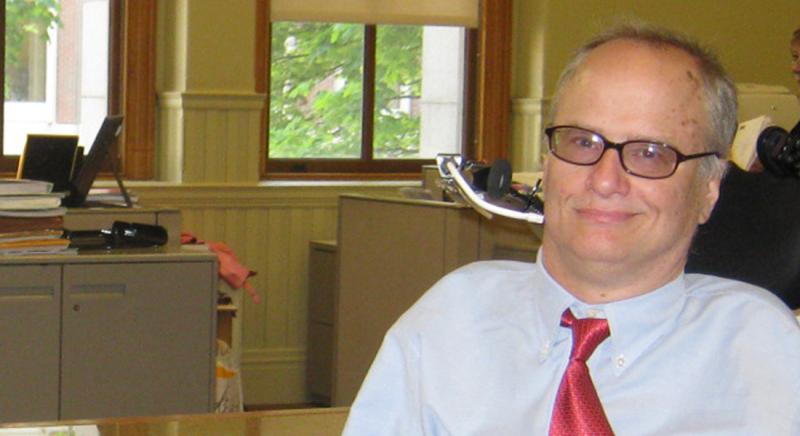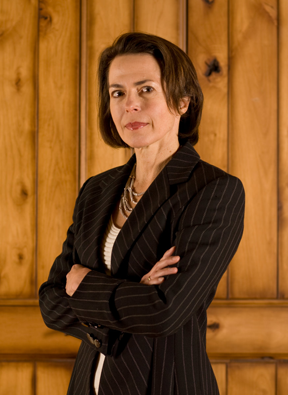Right To Die Argument Presented By Disabled Community Offers Alternative Perspective

Not because he wanted to die, or even because he was suffering, but because people around him thought that if they were in his shoes — in his wheelchair, that is — they wouldn’t want to live. Kelly was able-bodied until he turned 25. Now, he is a professional activist for disability causes, and in particular, in opposing physician-assisted death.
Since Californian and cancer patient Brittany Maynard became famous this year for moving to Oregon to take advantage of their “death with dignity” law, the concept of taking lethal medicines in order to end one’s life has become an even more active debate.
Gallup reports that between 58 and 69% of Americans support the concept, with the large gap accounting for difference in wording. That poll was last completed before the Maynard case, but an NPR poll held this October found about the same.
Judging by opinion pieces and TV talking heads, the support is only growing. Yet, as Kelly would point out, the wishes of the many cannot outweigh the safety of the few, and many people with disabilities say that if “death with dignity” becomes legal, they will be the first to be pushed to the front of the line.
SEE ALSO: Stars Support Disability Awareness at the 2012 Media Access Awards

Not so.
When I spoke to Kathryn Tucker, the executive director of the Disability Rights Legal Center (DRLC) at Loyola Law School, she corrected me. Unlike suicide, she pointed out, when someone chooses to end their life with the aid of a doctor, it’s typically because they are already dying, and simply want to do it as painlessly and easily as possible.
“Euthanasia” is also a non-starter, which Tucker defined as the doctor ending the patient’s life without his or her explicit consent (dictionary definitions vary, but her point, of course, is that the term is loaded).
But for most within the disability rights movement, a loaded term is exactly what is needed. In this case, they might say, loaded means accurate. Most disability rights groups oppose legalizing physician-assisted death, arguing that when it is legal, people with disabilities are pressured by their doctors, communities, and even families, to end their lives.
And in a society that doesn’t provide a full range of options for disabled people, physician-assisted death can be an easy out for the able-bodied family member. For the disabled person, they say, it’s a deadly nightmare, as he or she is made to feel like a living burden.
SEE ALSO: Dr. Kevorkian, Supporter Of Physician-Assisted Suicides, Dead At 83
Even the National Council on Disability, the federal agency which analyzes national policies’ impact on people with disabilities, staunchly opposes legalization. According to Not Dead Yet, a disability organization of which Kelly is a regional director, the only disability organization that officially supported legalization was the now-defunct Autonomy Inc.
The Not Dead Yet website says that Autonomy was “formed as a chapter of Compassion in Dying,” suggesting that cynical politics are at play. DRLC seems not far behind in okaying assisted death, having named Tucker their executive director in September after she completed two decades at the pro-legalizing group, Compassion & Choices. Even within Tucker's announcement letter, DRLC celebrates that work, saying she “worked to improve patient rights and choice at the end of life.”
That raised an eyebrow with disability activists. After Tucker was hired, at least 22 disability organizations signed a letter to DRLC, asking to “engage in dialogue…about the serious concerns we have over Ms. Tucker’s work in her previous position at Compassion & Choices,” and that her previous work “has placed members of the disability community in significant danger.”
SEE ALSO: Terminally Ill Brittany Maynard Chooses Her Own Death
But Tucker says she simply wants everyone to have the right to end life as they see fit, a right that she says we already partially extend when we allow end-of-life decisions, like refusing to resuscitate.
“We empower people to make those decisions, because we’re a free country. We respect individual autonomy, and autonomy over the body, and medical decision-making,” said Tucker. “So those choices are really no different than the choice of a patient who says, "I’m trapped in a dying process that I find unbearable… And I don’t want to endure this last bit of horrific suffering.”
It’s hard to imagine hearing such a plea and not feeling moved. For anyone who has seen a person tumble toward death with the predictable unpredictability of a failing body, the chance to stop that suffering before it starts is a promising, if not miraculous, one. But while suffering might be the most compelling reason to legalize, it is not the reason most patients ask for lethal prescriptions.
A study released in 2013 showed that for the 114 patients who went to a cancer care center in Seattle and asked about information on the process, the main concerns had little to do with physical suffering.
In the study authors’ own words:
The reasons for participation in our program reflect concern about autonomy, dignity, and functional status rather than disease-related symptoms or depression.
Those words may sting for disabled readers, many of whom have experienced derision and prejudice for having different “functional statuses” for their entire lives. In fact, it’s this very concern that drives their opposition to “death with dignity” laws.
When able-bodied people become disabled, they may express the wish to die, but perhaps only because they have no concept of a happy, fulfilled life with a disability. And, the thinking goes, they have no concept of this because disabled people in America are either pitied or invisible. And so, when a recently-disabled person chooses physician-assisted death, it sends a lot of messages: “I never saw you,” “my life isn’t worth living,” and “neither is yours.”
SEE ALSO: Death With Dignity: Why The United States Should Live And Let Die (Opinion)
Europeans are also seeking physician-assisted suicide for reasons unrelated to physical suffering. In Switzerland, a 2008 study on two prominent organizations that provide such services found that between 22% and 34% of those who took lethal medications did not have a diagnosis of a fatal disease. The study authors explain that “weariness of life, rather than a fatal or hopeless medical condition, may be a more common reason for older [clients] to commit suicide.”
When Kelly and I spoke on Skype, his assistant adjusted his microphone and helped him get the computer program running. Kelly was reclined on a bed, wearing his favorite pink “Not Dead Yet” shirt, as he had promised when we set up the interview. He was vivacious and bright, and if I had closed my eyes, I would have had no idea he had a disability.
But that’s exactly what he would never have me do: close my eyes and pretend that his disability isn’t real.
SEE ALSO: 'Service Dog? Yeah, Right’ (Opinion)
When Tucker and I were closing our conversation, I confessed to her that I one day would like to have the option to take my final weeks or months into my own hands. I asked her if she thinks that will be a possibility in fifty years, when I am stepping into my eighties. She thought so. Support for “death with dignity” laws are only increasing in the polls, she pointed out. By the time 2064 rolls around, we will also have about 10 billion people on the planet. It’s hard to imagine that such laws won’t become mainstream, even if only as a practical matter.
I asked Kelly if the only answer is to continue to criminalize physician-assisted death. Was there any chance that policy could be adjusted so that all Americans could choose to end their own lives as they saw fit, and people with disabilities would not be put at risk?
“With the current prohibition in most states, there’s at least a chance of an investigation,” he said. “Once it’s legalized, there’s no chance.” In other words, maybe when I am nearing the end of my life, I can find some help through creative means. But no matter how creative a person with a disability gets, she will always be at risk.
“Innocent people will inevitably lose their lives,” he said.
And according to Tucker and the more than 50% of Americans who support the practice, the more common tragedy is when innocent people are forced to keep them.
Contact staff reporter Carrie Poppy here, or follow her on Twitter here.



